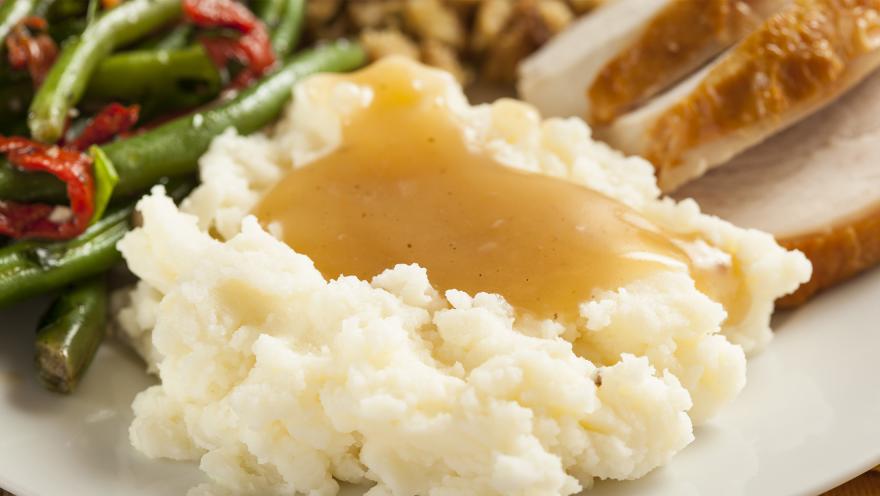Holiday celebrations and traditions are times of fun, fellowship and of course, food. And, while the holidays are meant to be enjoyed, they can also be a tremendous stressor for people living with ALS and their families.
Holiday gatherings can present new challenges for people impacted by the disease. “Adjusting traditions for a person with ALS does not have to change the entire holiday season, but adjustments would need to be made in order to accommodate the new normal the family is experiencing,” says registered dietician, Mary Love. “Planning ahead will be essential to ensure accommodations are made.”
While planning and adjustment will likely need to be made to traditional meals, many holiday foods have built-in advantages for people with ALS, as many are already high calorie which can be helpful to maintain weight. In addition, more than a few of them can be easily altered. “When it comes to preparation, there are plenty of ways to modify traditional holiday foods to make them safe and easier for a person with ALS to eat,” Love says. “Adding gravy is a great way to soften and add calories to any meal, particularly during the holidays, since it’s likely already on the table.”
But as tasty as it is, one can’t exist on gravy alone. “Foods like stuffing, cranberries (the smooth, jellied version), mashed potatoes, roasted vegetables, chopped or pureed dark meat turkey—which is typically softer and more flavorful—sweet potato casserole, butternut squash or pumpkin soup, and pumpkin pie without the crust are some great options that are potentially already on the menu,” says Love.
“It is best to avoid items that are difficult to chew and swallow, such as nuts or raw vegetables,” Love recommends, with a reminder that it isn’t just what you serve, but how you prepare it. Cook foods thoroughly so they can be easily softened or chopped into smaller pieces through methods like roasting or steaming versus pan frying or grilling. And consider avoiding recipes with a lot of small, bite sized ingredients that are difficult to alter or do not mix well.
And when planning for a holiday feast, remember the old adage that the food by itself is not the meal. A person with ALS may need breaks during a long gathering, as eating can require a lot of their energy. When planning, allow for the fact that a person with ALS may need more time than they used to for the meal.
It’s also important to remember that food is not the only part of holiday gatherings that might need to be altered. Equally as important is considering how some tasks that seem mundane may be much more exhausting for a person with ALS. Keeping this in mind and being patient can lead to a more enjoyable experience for everyone. “If your tradition is playing board games after dinner, consider moving your meal earlier in the day and games later so the person with ALS can have energy for both, rather than be expected to go from one to the other,” Love suggests.
Above all, remember that while traditions are important, it is almost always the people taking part in the traditions that make them truly special. “Understand that this holiday may look different from ones of the past but can—and should—be enjoyed just as much,” Love says. “Enjoy the time together, understand that the person with ALS has a new normal to navigate and as family, we can be supportive in helping steer through those changes.”
CLICK HERE for some tasty, easy to chew recipes to consider as you celebrate this holiday season.
To continue to follow stories about people living with ALS in the community and learn more about the disease, subscribe to receive our weekly blogs in your inbox HERE or follow us at als.org/blog.


Comments
Thank you, good read.
Join the conversation. Please comment below.